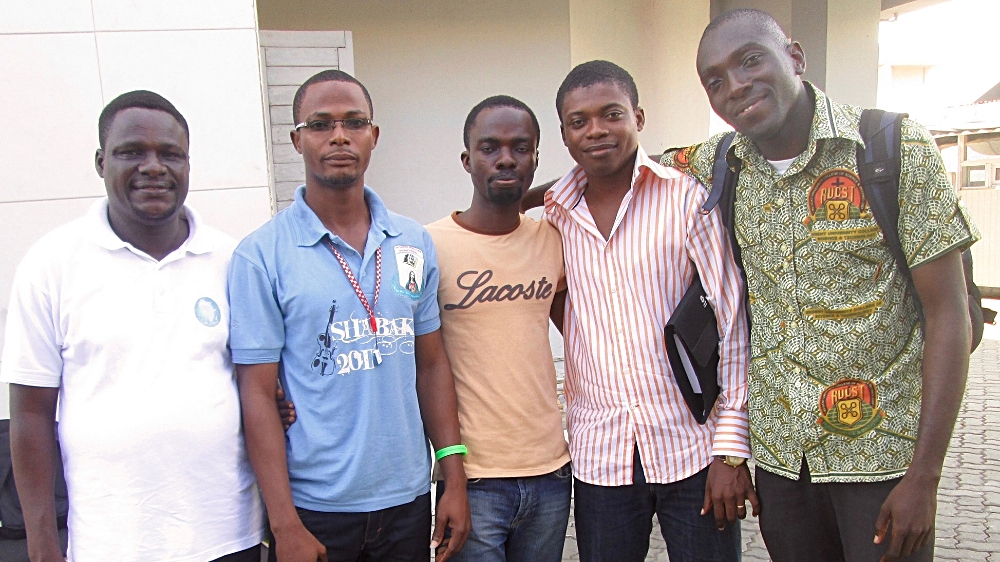Crisis and scarcity of leaders abound as one scandal after another scar young talented individuals away from their ambitions to contribute in significant ways to society. The rise of ‘popularism’ is feeding the gullible with false hopes and eroding public trust in leadership. Decent leaders have fallen into negative stereotypes as they have allowed their blind spots to go unchecked and have surrounded themselves with people who would only tell them what they want to hear. The last two months of 2016 brought to light too many leadership failings in geopolitics from North America, Africa, and Asia. Political leaders were the primary culprits along with Christian leaders. I focus on five areas for leaders and emerging leaders to ponder, process and promote as we step into a new era of no secrecy with emerging technologies. Leaders are fallible human beings – they fail, have shortcomings and grow. It is only wise that we all resolve to be better people each day. The focal areas of this blog challenge the lies we tell ourselves, expose misguided passions and commend noble qualities that may enhance success and retain talented people. Consider ‘G’ for the opportunity to grow.
G is for Greatness
Most leaders want to be great, but by what criteria do you measure greatness? It is too easy to be blindsided and equate self-induced euphoria with great leadership. Executives like to talk about greatness in terms of the size of their budgets, the value of their properties, or lucrative returns on investments. Large bottom lines make them feel big. Rising to the top may be analogous to climbing a high mountain in your region. The drive, determination, and delight of ascending are not the same as what it takes to enjoy the scene at the top. The view of leadership from the top is panoramic. The feeling can be humbling, if not lonely. The tremendous responsibility becomes apparent. Pomposity in leadership is like an inflated balloon waiting to burst in time. Have you encountered a leader who thought the first thing you should know about them is how important they are? You may be looking at an insecure person performing for attention. I am not advocating for mediocrity, but the leaders that I call great do not call themselves great. Rather, their greatness is rooted in docility, servility, and civility. They are competent and compassionate. Great leaders are not self-congratulatory. They believe in their people, their product, and actually, seek to make a difference in society. True greatness is when a leader resolves to make others thrive on their watch.
G is for Greed
It was a real struggle to come face to face with greed in America. I had always thought that avarice was only a friend to African politicians until I discovered that it has a larger family spread across North America. People do not seem to have enough; contentment is often confused with complacency. Even Christians justify the rich exploiting the poor to acquire more. Greedy leaders are the envy of many. Leaders across the world have failed to learn a very basic lesson in life – that greed will always ask for more and is never satisfied. Greed is like a bottomless pit in the heart always demanding to be filled by the unwise. Some African church leaders use psychological and spiritual manipulation to extract money from the poor and vulnerable. Somehow, these same people expect God to bless them even while they rob others in His name. The ancient philosopher Musonius Rufus put it well when he said: “wealth is able to buy the pleasures of eating, drinking and other sensual pursuits - yet can never afford a cheerful spirit or freedom from sorrow.” If leadership is service and Christ-like leadership is self-giving, then how do we get out of the trappings of greed? The voice of Jeremiah rings through for Africa today: “From the least to the greatest, all are greedy for gain; prophets and priests alike, all practice deceit” (Jer. 16:13 NIV). I call them ‘Bible robbers.’ The difference between them and ‘armed robbers’ is that one uses the Bible while the other prefers the gun. Avarice is a desire to overcome by leaders who care to do so!
G is for Game
There is a widespread notion that leadership is just a game. It is not a coincidence that recent decades have seen a decreasing trust in leaders. Think about the rate at which top leaders who play ‘the game’ are getting busted for corruption and plagiarism in the past few months. How would you feel if you knew that the one who makes decisions about whether you put enough bread on the table, have decent health care, and basic security thinks your fate is a game? A young man approached me after a speech at ‘Lead Conference’ in New Hampshire with a sense of confusion when he asked, ‘Why did you choose to dismantle my paradigms for leadership and insist on leadership as a lifestyle?’ My counsel was simple. Leadership is neither a game nor merely an art of dealing with people, I reiterated. Core values inform the decisions of good leaders. It is never healthy to reduce leadership to a game with potential winners and losers. Credible leaders have died for their values. Leadership is an honor that is bestowed and a duty to be discharged. We all should count it a privilege to be trusted with the care of others. Leadership is a lifestyle – strive to be the same person at home, church, and the workplace. They are called leaders with integrity.
G is for Grace
People who rise to the top have battle scars. Leaders have to work with people and dealing with people is difficult. Strong leaders are those who show grace and learn to forgive. They are conscious of their own failings and exercise grace when needed. Bitterness does not find a home in their hearts. Gracious leaders are grateful leaders. They are principled leaders who choose to focus on the better angels in humans. Nelson Mandela puts it well when he said, “as I walked out the door toward the gate that would lead to my freedom, I knew if I didn’t leave my bitterness and hatred behind, I’d still be in prison.” Grace is an attitude and quality we must crave. I am a recipient not only of the grace of God but of many who accepted my apology, who gave me a chance and who did not let one mistake be the terminator of my fate. Young African leaders need to forgive older folks whose insecurity has turned them into perpetrators. Grace gave us forgiveness in Christ and grace can make us more effective leaders.
G is for Gratitude
The world celebrates greed and characterizes contentment with contempt. Those who grew up in a society that rewards good deeds with money too often confuse virtue with compensation. Sometimes, all someone needs is a genuine sense of gratitude. Rapport and goodwill suffer when leaders unintentionally cultivate what I call ‘transactional relationships’ – the utilitarian notion that people do good deeds only for what they can get back from others. Imagine how you would feel if people always perceived your kind gestures and service to others as being motivated by the desire for recognition or money. Grateful leaders emit vibes for healthy morale and team cohesion. Appreciation appreciates in value. In ancient cultures, gratitude was an important virtue, but our world seems to play down its importance. As Plato put it, “a grateful mind is a great mind that eventually attracts to itself great things.” Leaders who overcome ungratefulness will gain from the mutual benefit of appreciation. None of us is entitled to the best and brightest. We are privileged that good people chose us. Sometimes all they need is an acknowledgment, a word of commendation, or the two magical words – ‘Thank you!’
Gone are the days when leaders were able to hide their flaws and put on a public persona removed from reality. More than ever, we need reminders that steer us in the right direction, and I hope that the focal points of ‘G’ in my leadership alphabet prompts a renewed sense of urgency to be self-aware and surround yourself with those who would tell you the truth. What other blind spots would you suggest for me and others as we try to become better leaders? Please, comment below!






